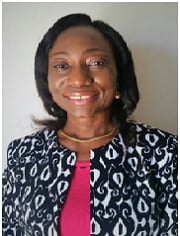Working Party on Women & Family Medicine annual report
 Kate Anteyi, chair of the WONCA Working Party on Women & Family Medicine (WWPWFM) reports on activities July 2017 – June 2018
Kate Anteyi, chair of the WONCA Working Party on Women & Family Medicine (WWPWFM) reports on activities July 2017 – June 2018
The WWPWFM goals for the 2016-2018 biennial is to have a sustained impact in WONCA regions through expansion, networks and linkages, and address women’s health at primary care through family medicine perspective. Universal health access will not be achieved unless women are cared for in their own communities and are empowered to take decisions about their own health in a supportive environment. Improving the quality of care for women at primary care in all Wonca regions align with WONCA’s mission of improving the quality of life of the peoples of the world through defining and promoting its values, including respect for universal human rights and including gender equity, and by fostering high standards of care in general practice/family medicine. WWPWFM objectives are to enhance leadership skills among women family doctors, improve women’s health at primary care, strengthen collaboration with other WONCA working parties, young doctors group and SIG. WWPWFM continues to increase her membership and impact at WONCA regions through pre-conference meetings, and advocacy. During the 2016-2018 biannual, WWPWFM membership increased with women doctors joining from Brazil, Canada, China, Egypt, Nigeria, Saudi Arabia, South Africa, United Kingdom, Ukraine, and United States.
Join our working party
Interim meeting:
WWPWFM organizational interim/strategic meeting held August 14 – 17, 2017 in Soweto, South Africa. The theme of the meeting was women’s health in primary care, the face of family medicine. The objectives were to identify challenges of providing quality care to women at primary care, develop evidence informed generic tools for improving women’s health at primary care and develop strategic plans for the next biennial. The focus was on how WWPWFM can advocate for provision of quality services for women specific health issues at primary care through continuity of care and relationship. The outputs from the interim meeting were women’s health advocacy and workshop tool, generic workshop tool for leadership for women family doctors and a strategic plan for Seoul 2018. Also, at the meeting, the Gender Equity Standard (GES) documents were adopted as reference documents of WWPWFM.
WONCA Regions Activities:
WWPWFM executives and regional leads organized pre-conference meetings and women’s track on women’s issues in various WONCA region conferences. WWPWFM participated in the WONCA Africa conference from August 18-20, 2017 by organizing a pre-conference meeting with over 50 attendees and a leadership workshop. In Wonca Europe and Asia Pacific, WWPWFM members also participated and organized pre-conference meetings, and workshops on gender-based violence and leadership.
Collaboration with other WONCA Working Parties, SIG and WHO:
At the May 2018 WONCA Rural conference in India, WWPWFM through her Asia Pacific members, successfully organized a family violence workshop, had a panel on women rural doctors and participated in the rural café forum. WWPWFM continues to participates actively in the WONCA SIG on family violence forum and WHO MCH forum.
Research:
WWPWFM members are engaged in the resilience among women family doctors during life cycle transition project and studying the working conditions for women family doctors around the globe.
WONCA World conference, Seoul 2018:
WWPWFM will hold a pre-conference at Seoul2018. She also has approval for ten workshops abstracts submitted by members. Her members will also be involved in various oral and poster presentations.
Impact:
WWPWFM continues to make remarkable impact on women’s health and women family doctors through advocacy, leadership, education, mentorship, research and relationship. WWPWFM has active regional groups/members in most WONCA regions. WWPWFM region-specific tools for women’s health across the lifecycle will enhance the skills of primary care providers to deliver evidence-informed care that will improve the quality of life and health outcome for women and girls. The identification of the occupational challenges facing women family doctors and trainees will strengthen their ability to seek equity in working conditions through regional and international collaboration. The expected outcome is that as women family doctors become more engaged and empowered in improving their own work situations, their leadership abilities will be enhanced.
Challenges:
Financial constraint has hindered the implementation of WWPWFM proposed global projects on qualitative assessment of working conditions of women family doctors around the globe and the development of region-specific standards for providing evidence-informed women’s health across the lifecycle in primary care. It has also been difficult getting younger women doctors to join and commit to the activities of WWPWFM due to diverse reasons including financial, lifecycle, and conflicting scheduling with the Young Doctors Movement meeting during WONCA conferences.
Conclusion:
WWPWFM is experiencing growth despite existing financial constraint, with increasing collaboration internally with other Wonca Working Parties and SIG, and externally with WHO and other donors. At Seoul 2018, WWPWFM contribution to a successful WONCA world conference will be significant. WWPWFM looks ahead to be a significant player in improving women’s health across the globe, as she strategize for sustainability and ownership at national and regional levels.